- News
- Reviews
- Bikes
- Accessories
- Accessories - misc
- Computer mounts
- Bags
- Bar ends
- Bike bags & cases
- Bottle cages
- Bottles
- Cameras
- Car racks
- Child seats
- Computers
- Glasses
- GPS units
- Helmets
- Lights - front
- Lights - rear
- Lights - sets
- Locks
- Mirrors
- Mudguards
- Racks
- Pumps & CO2 inflators
- Puncture kits
- Reflectives
- Smart watches
- Stands and racks
- Trailers
- Clothing
- Components
- Bar tape & grips
- Bottom brackets
- Brake & gear cables
- Brake & STI levers
- Brake pads & spares
- Brakes
- Cassettes & freewheels
- Chains
- Chainsets & chainrings
- Derailleurs - front
- Derailleurs - rear
- Forks
- Gear levers & shifters
- Groupsets
- Handlebars & extensions
- Headsets
- Hubs
- Inner tubes
- Pedals
- Quick releases & skewers
- Saddles
- Seatposts
- Stems
- Wheels
- Tyres
- Health, fitness and nutrition
- Tools and workshop
- Miscellaneous
- Tubeless valves
- Buyers Guides
- Features
- Forum
- Recommends
- Podcast
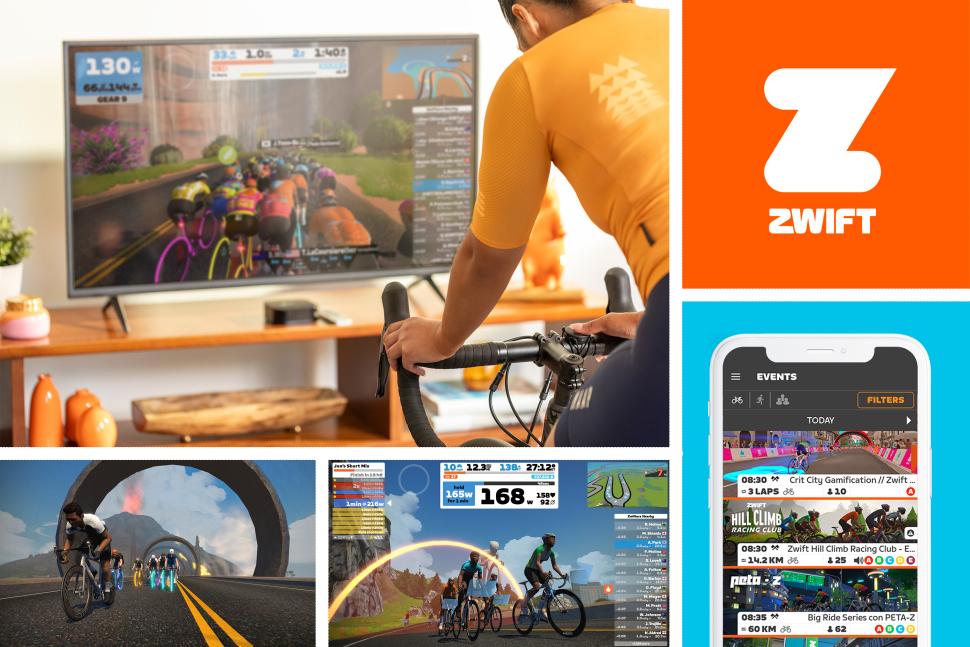 Zwift Group Rides
Zwift Group RidesEverything you need to know about group riding in Zwift

This article includes paid promotion on behalf of Zwift
Let’s face it: none of us really look forward to winter. The nights draw in, the weather turns bleak and it’s tempting to just go through the motions trying to keep a bit of your fitness for when things brighten up again. There’s no doubt that indoor training platforms like Zwift have been a massive boon for winter riding, allowing you to get the miles in and ride with thousands of people from around the world, even in the very depths of winter.
There are loads of organised events on Zwift to help you mix up your riding. Whether you’re an elite rider or just starting out on your cycling journey, making the most of the different types of group rides will help you to improve by taking you out of your comfort zone and challenging you to ride harder and longer. When the weather turns you can swap your normal weekend ride with your mates to an indoor session, or you can ride with, and challenge yourself against, riders from all over the world. You might even find that winter becomes your favourite cycling season! Here’s how.
What you need to get started on Zwift
If you’re not already on Zwift then you’ll need an account: head over to zwift.com and sign up for a free 14-day trial. After that it’s £12.99 a month in the UK, although if you opt to get a Zwift Hub trainer (£549) then you’ll get a year of the platform for free!
To actually ride on Zwift, all you need is some kind of indoor trainer and something to run Zwift on. A basic trainer will work: If you fit a rear wheel speed sensor to your bike then Zwift can estimate your power on most trainers. Smart trainers such as the Zwift Hub are becoming more and more affordable and offer accurate power measurement, a better ride feel and the ability to change resistance to match gradients in the game or power intervals in a workout. The new Zwift Hub One uses virtual shifting for compatibility with an even wider range of bikes. You can run the Zwift app on most devices: desktop and laptop computers, tablets, phones and Apple TV boxes will all allow you to ride the roads of Zwift’s twelve different worlds.
> A Zwift setup for all budgets
So, once you’re up and running, how do you find a group ride to join? It’s easy!
The events calendar
Your main port of call for finding organised events is the events calendar which is a chronological listing of everything that’s coming up on Zwift. This is best accessed through the Zwift Companion app (although it’s also on the zwift.com website). Just open the app and choose Events from the menu. You can filter the list, so if you’re looking for a specific kind of ride you can opt to just display those events. Whatever event you’re looking at will have at least one category circle next to it. What do those mean?
Zwift’s category system
It’d be no fun if you rocked up to an outdoor road race as a complete noob and you had to line up with the elite riders, and the same is true indoors. So Zwift has categories from D (easiest) through to A (hardest), and you’ll be assigned a category in Zwift based on your fitness metrics from the last 90 days of activity on the platform. There’s also an E category, and this can mean a number of things. Sometimes it’s a separate women’s pen for a race, sometimes it’s a catch-all category for rides where everyone starts together. Increasingly Zwift uses category enforcement for actual racing, so if you’re a category B rider you’ll be prevented from sandbagging (racing below your true level) in a C or D race. For group rides that’s less of an issue. Let’s have a closer look at those.
Group rides on Zwift
Group rides are often organised by teams and communities that ride on Zwift, and each one will have its own flavour. Some will be steady tempo rides, others will include harder efforts along the way. It’s not unusual for a group ride to end in some kind of a race for the last lap of a circuit, or up the final climb. Give the ride information on the events calendar a good read so you know what you’re getting yourself into!
The benefits of group rides
There are always lots of people riding on Zwift, so you can usually find people to roll round with, or chase, or try to beat up a climb. It’s still a fairly solitary activity that way though: with the exception of giving someone a “ride on!”, you’re not really interacting with other riders. Group rides are different. Everyone’s chosen to be there and (for the most part) is invested in staying together. Because of that it feels more communal, and generally the ride leader will try and keep the chat going through the messaging system too. Many rides have a voice chat channel on Discord too, so you can jump on that if you’re feeling friendly.
Joining a group ride can spur you on to ride longer. An hour on Zwift on your own is infinitely preferable to the pre-virtual-training days when it was an hour staring at a wall or watching re-runs of the Tour de France, but if you’re chatting with other riders, and the ride leader is throwing in some sprints and drills, it’s a lot easier to stay in the zone. And for longer rides you’ll go faster: riding in a big group (or ‘blobbing up’) helps everyone, as the draft dynamics increase the overall pace of the ride.
Types of group ride
Group rides are often single-category rides, and they’re not usually category-enforced, so if you’re a category A racer and you just fancy a bimble round in a Category D group ride, that’s fine. There’s a bit of etiquette involved with group riding: there will often be a beacon rider (you can’t miss them) and unless specifically stated otherwise, you should ride with them. Don’t go booting off the front just because you can.
Group rides vary hugely in terms of length. The majority of them are between 30 minutes and 2 hours, but if you want something longer then there are still plenty on the calendar. Look out for rides such as the 100km SZR Endurance Ride every Saturday morning, which is split into three different categories.
Zwift Fondo and Zwift Tours
This year Zwift Fondos will take place across the last weekend of each month, starting November 30th 2023 and ending January 29th 2024. Distances will vary between 47km and 98km.
There are also a number of Zwift-run tours throughout the year including the Tour of Watopia, the Tour de Zwift, and the Tour of Makuri Islands; each Tour last for between four and eight weeks. These series offer hourly events to cater for different time zones, and each stage is run every day over the course of a week so that you can plan your ride around your other commitments. It’s not *technically* a race, but these events are hugely popular with the Zwift community, and with hundreds of riders signing up for each event you can be sure of a punishing pace at the pointy end of things.
Group workouts
As well as group rides, there are also group workouts. Again, they’re available through the events calendar, and if you look at the event details you’ll see not only the route you’ll be on but also an overview of the workout. Workouts on Zwift are interval-based – a certain amount of time at a certain percentage of your FTP – and if you have a smart trainer like the Zwift Hub then you can use the trainer’s ERG mode to keep you at the right effort. So it’s like doing a workout on your own, but there are other people suffering too, and you can chat with them on Zwift’s messaging system if you have any spare energy.
Obviously a category A rider doing an interval at 90% of FTP is going to be putting out a lot more power than a category D rider doing the same thing, so group workouts are designed so that everyone stays together in one group provided they’re keeping up with the workout.
> Everything you need to know to try racing on Zwift
Don’t see an event you like? Create your own!
You don’t have to stick to calendar rides. There are a couple of ways to make your own events for you and your friends.
The first is a meetup: you can create your own meetup from the events page in the Zwift Companion app. Pick a time and a route and invite whoever you like, you can send an invitation to anyone who’s following you. There’s an option to keep everyone together, which works in a similar way to the group workouts: so long as you’re pedalling, you’ll stay with the group. If you want to make it a race, you can even add some race results at the end.
If you want something a bit more structured, why not start a Zwift club? It’s simple to do from the app, and if you’re an admin you can organise and schedule club events: everyone from the club will be invited to join them. Like with meetups, you can pick any route you like, but you can also create a group workout for some structured training with your clubmates.
So there you go: some ideas to mix up your indoor training a bit and help you to get the best out of your winter sessions so you’re raring to go in the spring. How do you get the most out of your indoor training sessions? Let us know in the comments!
Latest Comments
- quiff 1 hour 34 min ago
Unfortunately if the newly added video is all the video evidence, it doesn't show much of the driver's verbals. I really sympathise with the little...
- quiff 1 hour 41 min ago
Agree it's generally much less stressful. With one exception - tailgating HGV drivers who are insistent on doing 56mph. I don't know if they think...
- Gbjbanjs 2 hours 3 min ago
I think you are right about being too close to the vehicle in front. However, the fact that the lead rider had to take evasive action to avoid a...
- mdavidford 2 hours 4 min ago
As an aside, Google's proposed route included this.
- anke2 2 hours 15 min ago
Check their website. These "inventors" run a social media agency and seem to make most (startup) money from a business selling pictures/movies of...
- mdavidford 2 hours 22 min ago
You said you agree with Councillor Bates, whose case is that there is £80k of active travel budget for Dyffryn Ceiriog and no active travel...
- E6toSE3 2 hours 55 min ago
One for shopping list. Need a new rear light. Varia and Magicshine have been the two options, this makes it 3....
- Shreds 3 hours 25 min ago
Another vote for Mercian here. They did a frame for me years ago. Superb job. ...
- Ihatepigeons 3 hours 29 min ago
I'll stick to Sainsburys own brand jelly beans thanks.
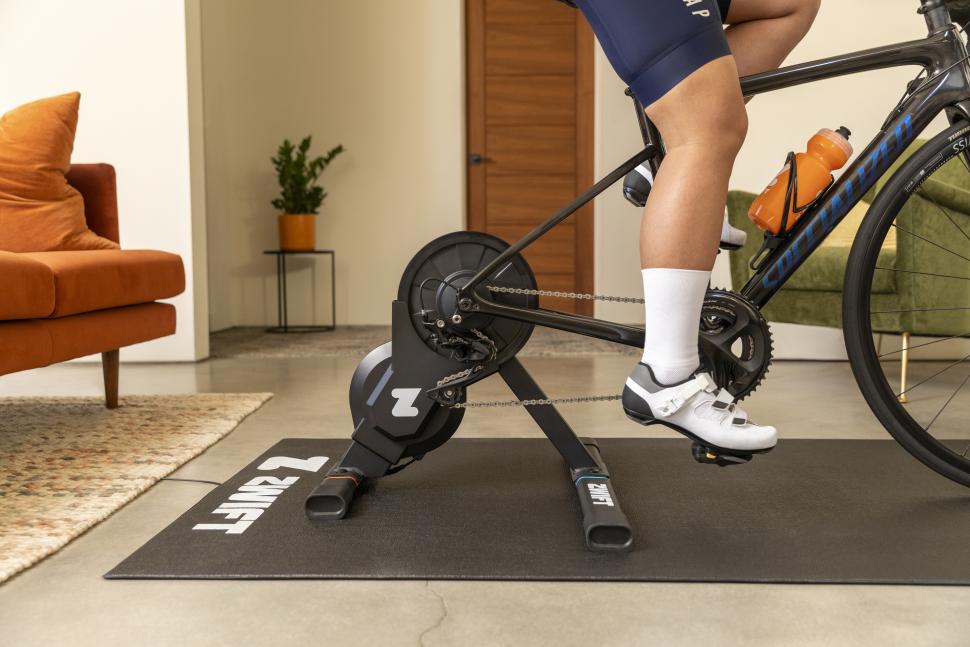
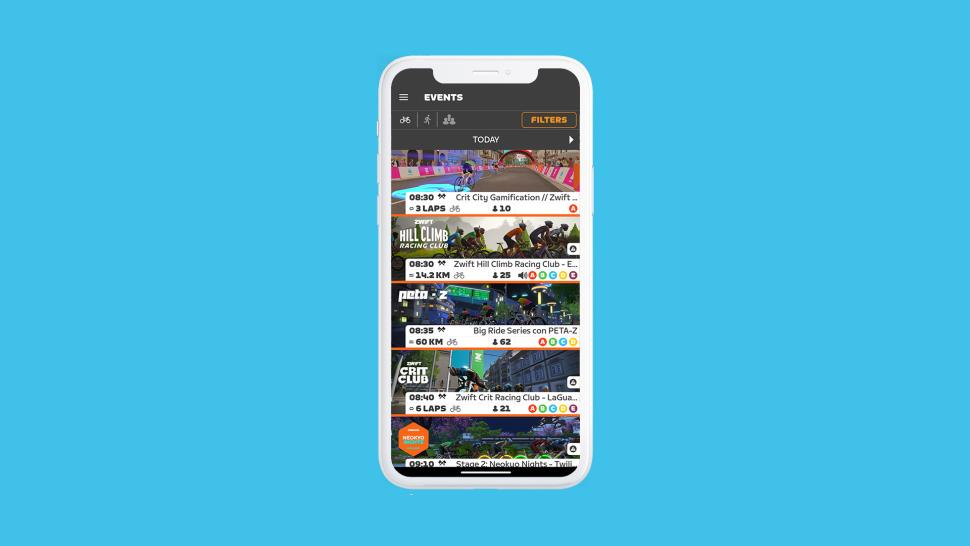
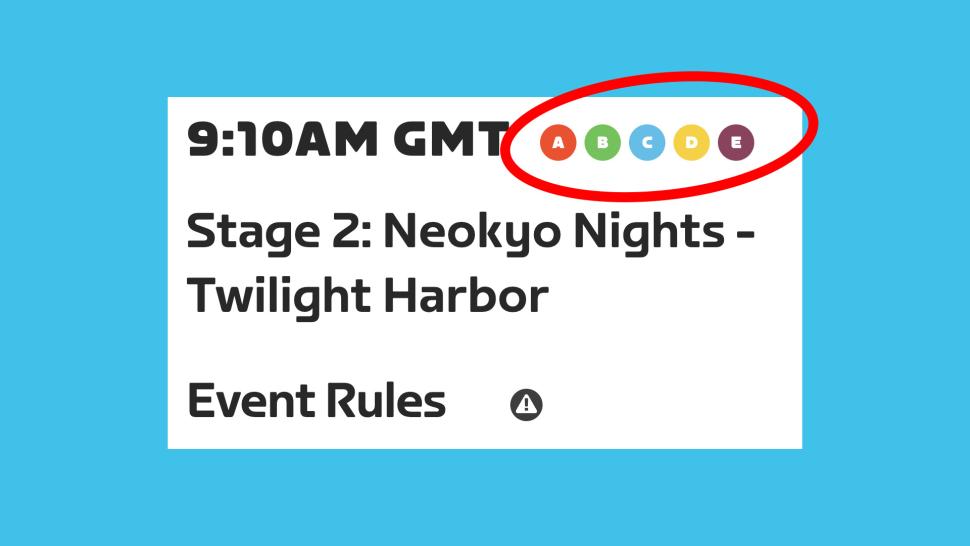
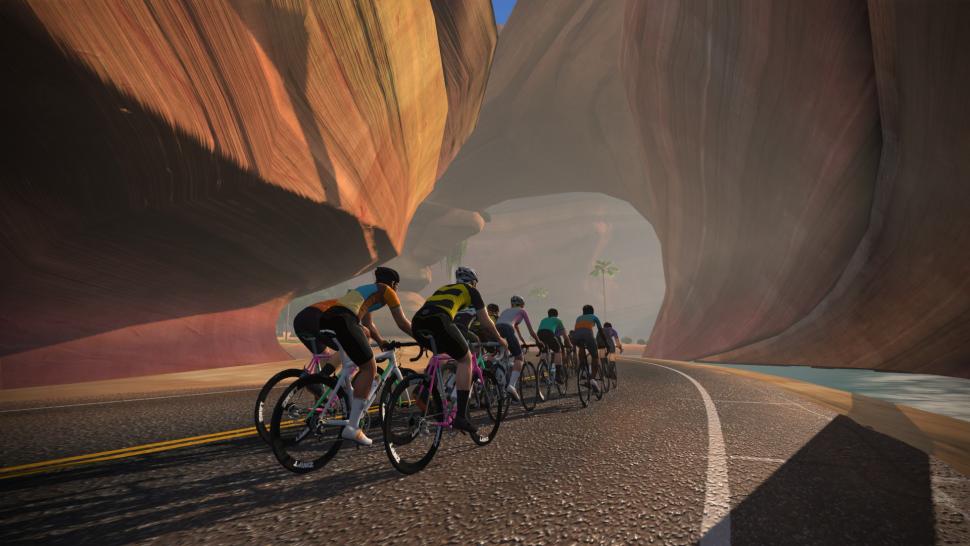
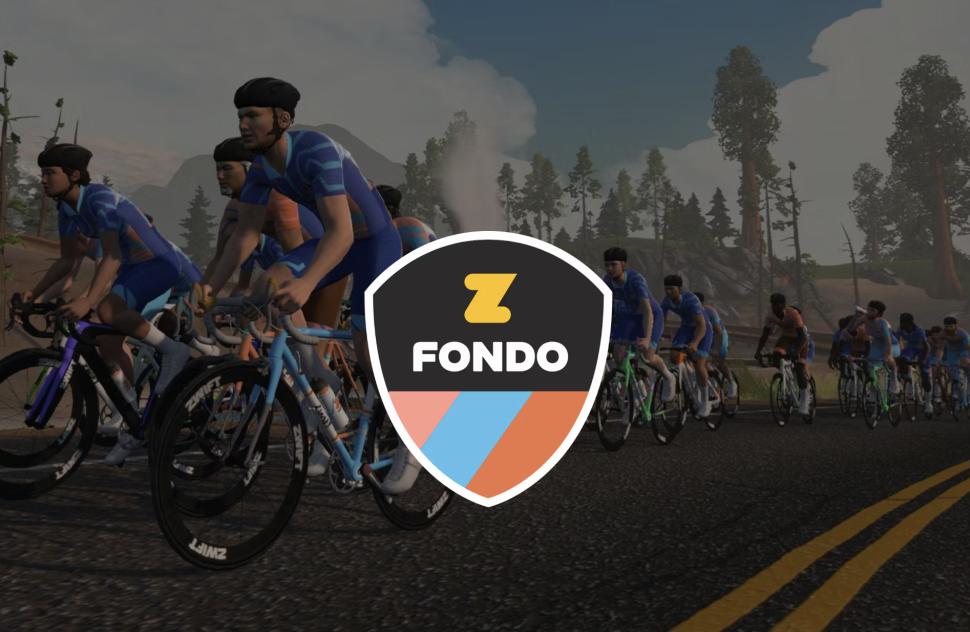
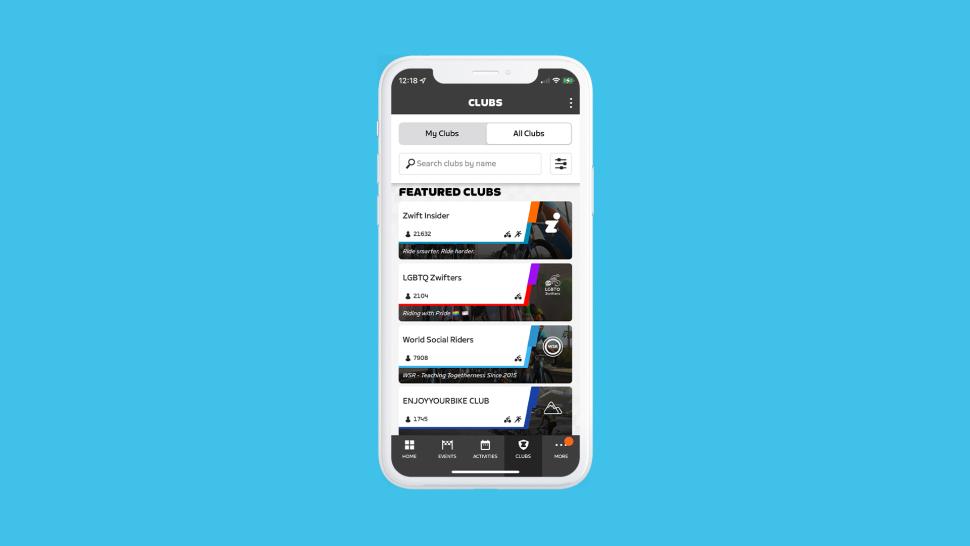
Add new comment
3 comments
Worth taking a look at this bargain (Nov 23). Never seen a turbo cheaper!
https://www.wiggle.com/p/lifeline-tt-01-turbo-trainer-magnetic
Not actually smart for Zwift though...
Or compatible with thru-axle bikes.
Chespest ever though as you say. If you're not bothered about resistance simulation, this, with speed/cadence sensors and you're away on Zwift.
Mental cheap though. Less than a bike stand, even if you never used it for training!
Also includes a riser block, which Wahoo sell for £17 alone.